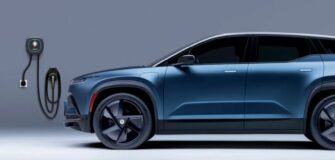Nissan’s Electrifying Vision: 19 New Electric Cars by 2030, Including India
The automotive industry is undergoing a revolutionary transformation, with electric vehicles (EVs) at the forefront of this electrifying shift. Nissan, a renowned global automaker, is stepping up its commitment to sustainability and a greener future by announcing plans to launch a staggering 19 new electric cars by 2030. What’s even more exciting is that these EVs are set to make their way to the Indian market, marking a significant leap toward a cleaner and more sustainable automotive landscape in the country.
Nissan’s Bold Electrification Strategy
Nissan’s ambitious electrification strategy is in line with the global push toward reducing carbon emissions and combating climate change. The company aims to play a leading role in this transition by bringing a diverse lineup of electric vehicles to consumers worldwide. By committing to launching 19 new electric models within the next decade, Nissan is sending a powerful message about its dedication to sustainability.
A Sustainable Future for India
India, like many other countries, is grappling with the challenges posed by pollution and climate change. The transition to electric mobility has the potential to significantly reduce emissions and create a more sustainable transportation ecosystem. Nissan’s decision to introduce its electric models in India aligns with the country’s efforts to promote clean energy solutions and reduce its carbon footprint.
Addressing India’s Unique Needs
While the Indian market holds immense promise for electric vehicles, it also presents unique challenges. Infrastructure development, charging networks, and affordability are some of the factors that play a crucial role in the adoption of EVs in India. Nissan’s approach to these challenges will be closely watched, as it seeks to address the specific needs and preferences of Indian consumers.
The Growing Popularity of Electric Cars in India
The Indian automotive landscape has been witnessing a gradual but significant shift toward electric mobility. Several factors contribute to the increasing popularity of EVs in India:
1. Government Initiatives: The Indian government has introduced various incentives and subsidies to promote electric vehicles. These measures include the Faster Adoption and Manufacturing of Hybrid and Electric Vehicles (FAME) scheme, tax benefits, and reduced GST rates on EVs.
2. Environmental Concerns: With growing environmental awareness and concerns about air quality, more consumers are inclined to choose electric vehicles as a cleaner and more sustainable alternative to traditional internal combustion engine cars.
3. Lower Operating Costs: Electric cars offer lower operating costs compared to their gasoline counterparts. Reduced fuel expenses and minimal maintenance make EVs an attractive option for budget-conscious consumers.
4. Improved Infrastructure: The development of charging infrastructure across major cities in India is gradually addressing the range anxiety associated with electric vehicles. Charging stations are becoming more accessible, boosting consumer confidence in EVs.
Nissan’s EV Lineup for India
While specific details about Nissan’s electric models for the Indian market are yet to be revealed, it is expected that the company will introduce a range of options catering to different consumer segments. This may include electric SUVs, compact cars, and potentially even electric two-wheelers.
Nissan’s global expertise in electric vehicle technology, as seen in its popular Leaf model, bodes well for the Indian market. The company is likely to leverage its experience to offer EVs that are reliable, efficient, and suitable for Indian driving conditions.
Conclusion
Nissan’s commitment to launching 19 new electric cars by 2030, with a focus on the Indian market, is a significant step forward in the global transition to electric mobility. India, with its growing interest in EVs and government support, is poised to embrace this sustainable revolution.
As the automotive industry continues its journey toward electrification, Nissan’s bold vision serves as a beacon of hope for a cleaner, greener future. With its electric vehicles, the company aims not only to meet the needs of Indian consumers but also to contribute to India’s sustainability goals and reduce the environmental impact of transportation. Nissan’s electrifying promise is a testament to the power of innovation and a greener, more sustainable tomorrow.









